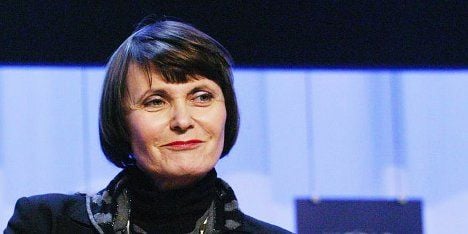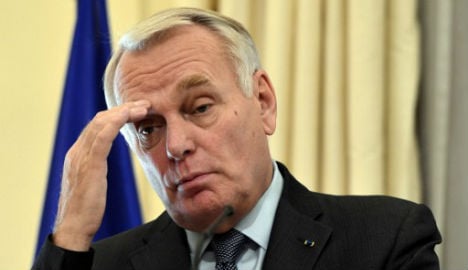“I am here today to announce I will not present myself as a candidate in the next elections in December … after almost nine years in government,” Calmy-Rey said on national television Wednesday afternoon.
“I worked to develop our presence beyond Europe, to become and remain a key player outside of Europe,” she said.
Swiss presidents are chosen annually by a joint session of parliament among the seven members of the government, or Federal Council. The position, largely honorific and with little powers, usually rotates among the government members.
The departure of Calmy-Rey, who has been in government since 2003, is seen as part of a Socialist Party strategy ahead of the October 23 parliamentary elections. Calmy-Rey said the decision was taken in consultation with party members.
The elections are expected to be hard fought between the Socialists and the far-right Swiss People’s Party, currently the biggest group in parliament and expected to win more seats.
At the end of the conference, Calmy-Rey tried to summarize her nearly nine years as head of the Swiss diplomatic service.
“The limits between internal and external politics are getting smaller,” Calmy-Rey said. “There is no national consensus on how to position Switzerland internationally.”
But, she added, “Switzerland is a neutral country, with nothing to hide.”
Calmy-Rey, born in 1945, worked in a family firm for over 20 years before moving into politics in 1997. She was elected to the Federal Council in December 2002, to become the first grandmother to sit in government.
Nicknamed “Cruella” because of her trademark blond highlights, she admitted to being intransigent.
She caused controversy by espousing a form of foreign policy which she called “active neutrality”.
For example, she proposed keeping a record of all the people killed in the Iraq war, a suggestion which fell on deaf ears.
But despite the controversy she remained popular with large swathes of the population.
Rumours have been circulating for weeks about her imminent departure, but Calmy-Rey had previously refused to comment.
Her possible successors include party colleagues Pierre-Yves Maillard and Alain Berset.



 Please whitelist us to continue reading.
Please whitelist us to continue reading.
Member comments